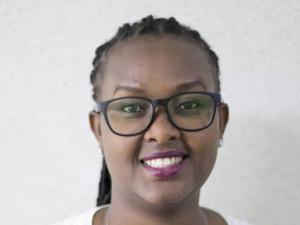
CHOGM is a platform for Rwandan women to learn, share experience – PSBatamuriza
The Commonwealth Heads of Governments Meeting (CHOGM) is around the corner, and so is the Commonwealth Women's Forum (CWF 2022), which is held in parallel with the biennial CHOGM. The forum will take place in Kigali between 20-21 June 2022.
What’s in it for the most ordinary woman in our community? Are there some opportunities that they could leverage? Mireille Batamuliza, the permanent secretary at the Ministry of Gender and Family Promotion, in an interview with The New Times’ Jade Natacha Iriza offers more insights.
Excerpts:
CHOGM is coming, and so is the women’s forum, one of the four meetings to be held along CHOGM. How will Rwandan women benefit from this, what are the opportunities there?
Opportunities are many because the Commonwealth Women's Forum will attract a lot of people from different walks of life; young entrepreneurs, women's rights advocates, government officials, civil society and so on, to discuss and recommit to gender equality.
So we want Rwandan women to be part of the discussions. This is a good platform to learn from others, share experiences, challenges, lessons learned, especially in this post Covid-19 period. This is also an opportunity to showcase our culture, talents and Made In Rwanda products, which we think will positively impact the visit Rwanda campaign as well.
Speaking of the Commonwealth, what lessons does Rwanda offer to other members of the organisation?
In Rwanda, we have achieved a lot in various fields, including gender equality, which they could learn from. We are happy to see countries learning from us as we learn from them, because Rwanda is proof that transformation is possible and that it is a matter of choice.
Among the Commonwealth seven principles, there is also Gender Equality. What does Rwanda's membership in the commonwealth mean to the Rwandan woman?
We have learned that partnership is really important. As a country, you can achieve a lot, but with others whom you share the same mission and vision you may reach way far and faster. Gender equality is common to all commonwealth countries and is rightful to all Rwandans.
We see different rankings like Global Gender Gap Index, where Rwanda is ranked among the well performing countries in Gender equality. What does it mean? What criteria do they follow?
It means that Rwanda is doing well to close gender gaps and imbalances between women and men, girls and boys. According to the recent World Economic Forum report, Rwanda was ranked seventh and second in Africa.
So, the gaps are evaluated in four different sectors, measuring the progress made in women’s lives in economic, education, health and governance sectors. So Rwanda has been up front in promoting women’s and girls’ rights in terms of accessing education, health services, as well as economic empowerment.
Speaking of the mandate of your ministry MIGEPROF; why combine the two very critical mandates? Aren't they different issues that should be tackled differently?
Gender equality promotion is paramount for the family wellbeing. If women and girls’ rights are safeguarded in our families, in communities, and their voices heard, they contribute equally as their male counterparts to their families and the country’s development. So they should go together.
However, we have two main directorates. One is dedicated to family promotion and child protection. And the other one is dedicated to gender equality and women's economic empowerment. They coordinate all activities falling under those two portfolio, coordinate their sub-clusters, and all partners working in those two different sectors.
How does this concern the most ordinary woman in our society?
The most ordinary woman in Rwanda should be concerned about her own development, her family’s and her country’s as well. She has to understand that each of her actions, and choices have an impact on the country.
For example, if she chooses to send her child to school, to work and provide for her child, to access and benefit from health and financial services, then she's contributing positively, not only to her own development, but also to the entire society's development.
Majority of ordinary women in our society are mostly involved in the informal ways of income, sometimes risky…how are they specifically empowered?
You cannot plan at the country level, and forget these women, who even form the majority of the population. So we acknowledge them, by putting policies in place to help them to be integrated and provide tools at their level to foster development by availing financial support through Umurenge Sacco, BDF, etc, building well equipped markets and so on.
Would you say that they know these are all in place for them or there is a need for more awareness?
I cannot say they all know. It is our work on a daily basis to do awareness and to engage them from the lowest level. In the National Women Council, women are represented from the village, to cell level, sector, district to the province level. This way we work closely with them to facilitate the mobilization, advocacy and awareness.
Any final comment
Transformation is possible and everyone, any member of this country should take part in this transformational journey, regardless of their age, background, or field.
So I call upon all Rwandans, especially women to take part in the upcoming CHOGM and Women’s forum. We have a lot to share but let’s also learn from others.
https://www.newtimes.co.rw/news/chogm-platform-rwandan-women-learn-share...
